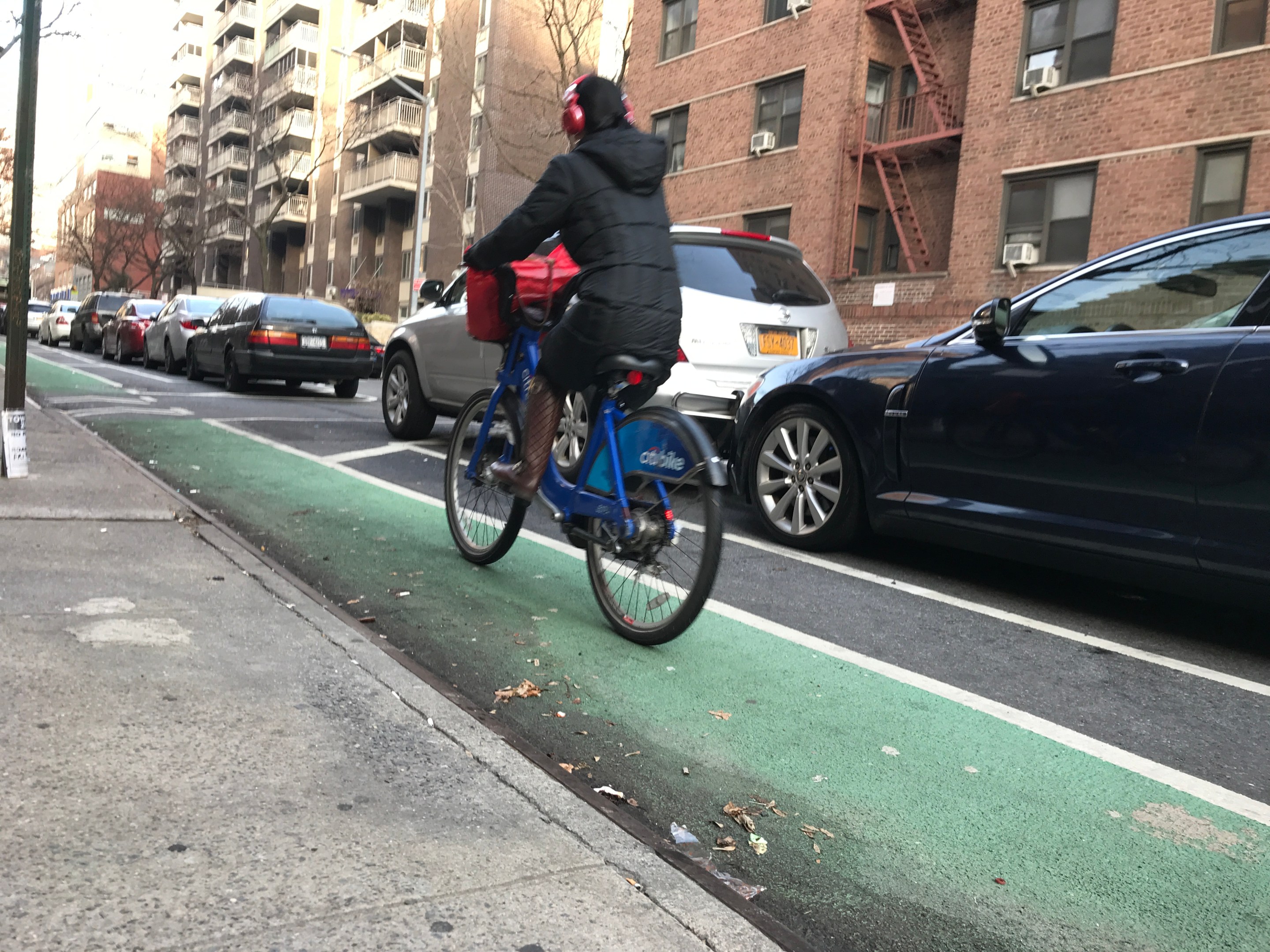It hasn’t always been this way.
In the early days of motoring, the automobile was treated as an interloper on city streets that were otherwise dominated by human activity. To ensure the safety of the people, “red flag laws” were enacted in the U.K. and U.S. requiring a walking chaperone to wave a red flag or carry a lantern in front of every automobile to warn others of the approach of these “horseless carriages."
Now the automobile is calling the shots. Some changes have been major, such as the recasting of the legal act of “walking across the street” as the criminal act of “jaywalking." However, most changes have been gradual. Just a little bit of footpath shaved off to allow a road to be widened over here. Or a newspaper headline blaming a pedestrian for being killed by an automobile over there. Soon, like a frog unwittingly boiled alive in a pot of water, we found ourselves in a hostile, car-dominated environment.
The most significant change to our environment has not been the physical territory that has been won by the automobile, although these territories are vast. Instead, the most significant change is the dominant position that the automobile has won over our psychological territory. This process has occurred so gradually that few have noticed, but the depth of change over the past 100 years is profound. Without the dominance of the automobile in our psychological territory, it would be impossible to overlook the negative externalities imposed by automobiles on society and to welcome their dominance in our physical territory.
Today, the majority of the population is so heavily subscribed to the constructions of “car-culture” that they are unable to recognize its obvious contradictions and hypocrisies. But this car-culture hypocrisy (or “carpocrisy”) affects attitudes to cycling. Let's examine it in a few tweets:
A thread on the hypocrisy of car cultures (feel free to add your own, it's fun!):
— Tony Arnold (@TonyArnold74) January 23, 2019
A person driving to the gym is a legitimate road user, but a person cycling to work is not.
Cars killing 150 pedestrians each year is due to pedestrian distraction, but bicycles killing 1 pedestrian every 5 years is due to reckless cycling.
— Tony Arnold (@TonyArnold74) January 23, 2019
Slowing cars to 30 km/h will impact on productivity, but bicycles travelling at 30 km/h are speeding irresponsibly.
— Tony Arnold (@TonyArnold74) January 23, 2019
A roads budget of $20 billion is inaction, but a cycling budget of $0.05 billion is extravagance.
— Tony Arnold (@TonyArnold74) January 23, 2019
A car squeezing past a bicycle is inconvenienced, but a person cycling past a car at traffic lights is a selfish jerk.
— Tony Arnold (@TonyArnold74) January 23, 2019
The colour of your car is your choice (despite dark cars being less safe), but people who walk or cycle should wear bright clothing.
— Tony Arnold (@TonyArnold74) January 23, 2019
Driving a car without a helmet is perfectly safe, but a a person riding a bicycle without a helmet has a death-wish.
— Tony Arnold (@TonyArnold74) January 23, 2019
Millions of free car parking spaces is inadequate, but bicycle lanes are a waste of space.
— Tony Arnold (@TonyArnold74) January 23, 2019
In inactive and unhealthy person should get free medical treatment, but an active and healthy person is a freeloader who should pay registration.
— Tony Arnold (@TonyArnold74) January 23, 2019
Driving children to school in a massive, lethal and polluting car is responsible behaviour, but cycling to school with children is irresponsible.
— Tony Arnold (@TonyArnold74) January 23, 2019
Motor vehicles need to be parked on every street to meet transport needs, but share bicycles are street clutter.
— Tony Arnold (@TonyArnold74) January 23, 2019
Perhaps by recognizing this carpocrisy, we will take the first step towards improving our cities: admitting that we have a problem.
Tony Arnold is director of Transportology, a transportation design firm. Arnold was responsible for coordinating the Australian National Cycling Strategy between 2013 and 2018.







